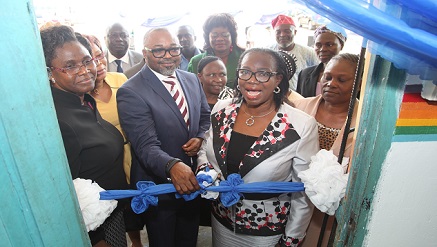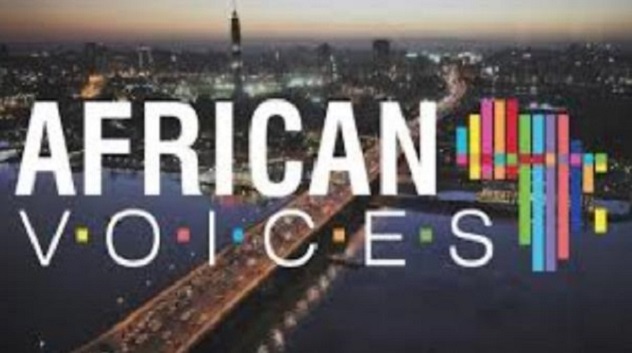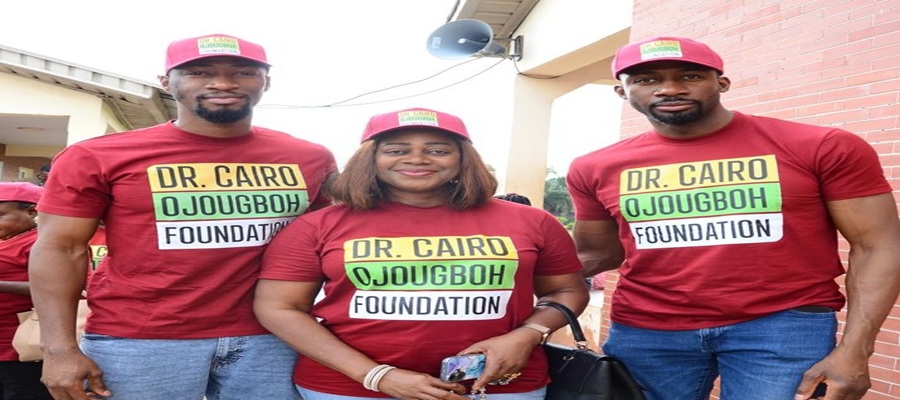Broadcasting
MultiChoice Opens More Resource Centres in Lagos

MultiChoice, Nigeria’s leading pay-TV operator, has returned to Lagos State for the third time since inception of its resource centre project in 2004, to inaugurate 10 additional centres.
This brings the total in the state to 18.
In its eighth phase, MultiChoice Resource Centre project has grown from four centres at inception in 2004 to 312 in 29 states in 2014.
At inception of the project, Lagos got three centres with an additional five in 2013.
Each beneficiary school receives a TV set, high definition personal video recorder (HDPVR) decoder, generating set, complimentary subscription to DStv education bouquet, which contains BBC World, BBC Knowledge, National Geography, Animal Planet, National Geography Wild, History Channel, Learn and ED channel, as well as facilities such as chairs and tables, among others.
John Ugbe, managing director, MultiChoice Nigeria, at the commemoration ceremony to launch the resource centres in Lagos State held at Eti-Osa Community Senior Secondary School, Sangotedo, Lagos, on Tuesday, November 11, said: “The resource centre project is MultiChoice’s way of promoting the use of integrated and communication technologies to raise the standard of education by deploying the imagery of sight and sound to make learning more vivid and creative”.
He added, “At MultiChoice, we have a strong conviction that the technological, economic, social and political advancement of any country has a direct correlation with its level of educational development and that the future of a country is intrinsically tied to the quality of education that the youths are exposed to.” He enjoined the ten beneficiary schools to maximize the use of the resource centres.
Mrs Aderonke Bello, managing director, Innovative Technology Literacy Services Limited (ITLS), the implementing partner for the MRC project, said: “Technology investment in schools is on the increase, and the deployment of satellite television to enhance learning is one key initiative that has helped to bridge the digital divide in rural communities. While technology will not replace teachers and textbooks, research has shown that technology-mediated learning environments provide immense opportunities for learners and lead inevitably to better teaching and learning outcomes.”
She thanked MultiChoice for giving back to the community and adding value to Nigeria’s education sector.
“It is expected that all trained teachers will make good use of their acquired knowledge to bring the often abstract, distant worlds of science into close focus and within the personal, meaningful realm of each student,” she added.
ITLS trained 50 teachers, five each from the beneficiary schools as MRC coordinators.
The teachers are expected to in turn train their colleagues and ensure effective and efficient use of the resource centres.
Mrs Mary Oyetunde, director, Co-Curriculum, Science & Technology, Lagos State Ministry of Education, thanked MultiChoice for the MRC initiative, describing it as complementary to Lagos State’s effort to provide improved facilities for enhanced teaching and learning.
“MultiChoice Resource Centre project facilitates e-learning, as our students can now utilize the satellite TV technology to obtain relevant facts and latest development in subject areas that have hitherto proved difficult to understand,” she said.
She thanked MultiChoice and assured that the beneficiaries will utilize the resource centres to raise the bar of education delivery and students’ performance in Lagos State.
“We shall continue to evaluate the impact of this intervention on education in the State with a view to obtaining better results. We hope that this partnership will be sustained to guarantee the future of our children,” she said.
Broadcasting
Spotify Marks 5 Years in Nigeria with 163.5% Listening Surge, Afrobeats Boom

Spotify marked five years in Nigeria since its February 2021 launch with dramatic year-on-year listening growth averaging 163.5% through 2025, featuring triple-digit surges early on and sustained momentum, propelled by Afrobeats streams rocketing +5,022% alongside booming genres like Amapiano (+10,330%), Gospel/Praise (+5,499%), Hip-hop/Rap (+3,020%), and R&B (+2,602%).

Spotify
Indigenous language music listening surged +554% in Nigeria in 2024 and +87% in 2025, with global growth at +141% and +41% respectively, underscoring rising demand for local storytelling sounds.
The platform’s Nigerian artist roster expanded +158%, fueling a discovery boom where average listeners (aged 26) streamed 150 different artists recently; users created over 25 million playlists, logged 1.4 million play hours in 2025 alone, and streamed 59 billion podcast hours total.
Top Artists (2021-2025): Asake, Wizkid, Seyi Vibez, Burna Boy, Davido.
Top Songs: “Remember” (Asake), “Dealer” (Ayo Maff & Fireboy DML), “Awolowo” (Fido), “Kese (Dance)” (Wizkid), “Lonely At The Top” (Asake), “Joy is Coming” (Fido), “With You” (Davido feat. Omah Lay), “Terminator” (Asake), “MMS” (Asake feat. Wizkid), “Doha” (Seyi Vibez).
Nigeria’s debut stream was Shiga Lin’s Cantopop epitomizing borderless discovery from day one.
Broadcasting
Pheelz Shares His Journey on Glo-Sponsored African Voices

Nigerian singer, songwriter and producer Pheelz (Phillips Kayode Moses) is set to feature this weekend on African Voices Changemakers, the flagship magazine programme on CNN International.

The 30-minute episode, sponsored by digital solutions company Globacom, premieres on Saturday, February 21, 2026. In a candid sit-down with host Larry Madowo, Pheelz opens up about his journey from church musician to global hitmaker, reflecting on the intersections of faith, fame and the expanding influence of Afrobeats on the world stage.
Now 31, Pheelz began his musical path as a multi-instrumentalist in church before earning widespread acclaim in 2012 as the producer behind the hit tracks “First of All” and “Fucking with the Devil” on Olamide’s YBNL album. His rapid rise saw him named among NotJustOk’s Top 10 Hottest Producers in Nigeria in 2013.
He further solidified his reputation by producing nearly every track on Olamide’s Baddest Guy Ever Liveth, earning nominations at The Headies 2013 and in the Producer of the Year category at both The Headies 2014 and the Nigeria Entertainment Awards. In 2020, he clinched The Headies Producer of the Year award, and in 2021 secured the Soundcity MVP Award for Best Collaboration for “Finesse,” his smash hit with Bnxn (formerly Buju).
On the programme, Pheelz reflects on the experiences that shaped his sound and creative philosophy, discusses landmark collaborations, shares his perspective on artificial intelligence and artistry, and explains why sound, storytelling and culture remain central to African music’s global resonance.
The show airs on DSTV Channel 401 at 8:30 a.m. (WAT) on Saturday, with repeat broadcasts at 12:00 noon the same day; Sunday at 4:30 a.m. and 7:00 p.m.; Monday at 4:00 a.m. and 6:45 p.m.; and Tuesday at 6:45 p.m. The broadcast schedule continues through Monday of the following week.
Broadcasting
Dr. Cairo Ojougboh Foundation Bolsters Nigeria’s Education Drive with ₦2.7m Student Support

Dr. Cairo Ojougboh Foundation has reinforced government’s educational development efforts in Nigeria through a targeted initiative honouring the late medical doctor and House of Representatives member, Dr. Cairo Ojougboh.

L-R: Son of the late Dr, Cairo Ojougboh, Mr. Nkem Ojougboh; Chairperson, Dr. Cairo Ojougboh Foundation, Mrs. Bose Ojougboh and another son, Mr. Orieka Ojougboh, during the event in Agbor, Delta State recently.
The foundation recently hosted a programme themed “Your Future, Your Choice” at St. Columba’s Grammar School in Agbor, headquarters of Ika South Local Government Area, Delta State.
It presented a cheque of ₦2,700,000 to cover examination fees for students preparing for West African Examinations Council (WAEC), National Examinations Council (NECO), and Junior Secondary School (JSS) 3 exams.
Academic excellence received further boosts with cash rewards for top students across the school’s nine academic arms, alongside distributions of notebooks and writing materials to enhance learning.
Chairperson Mrs. Bose Ojougboh, joined by her sons Mr. Nkem and Mr. Orieka Ojougboh, urged students to view challenges as stepping stones, embrace discipline, consistency, and focus, and make intentional choices shaping their futures.
“The school that moulded Dr. Cairo’s values deserves our support,” she said, highlighting the foundation’s commitment to inspiring hard work and personal growth.
Old Boys of St. Columba’s Grammar School, led by Elder Ndudi Agholor, attended in force, sharing nostalgic reflections and praising the school’s sustained high standards under current leadership.
School Principal Rev. Fr. Joseph Ugboh and Ika South LGA Chairman Engr. Jerry Ehiwarior lauded the initiative as “commendable and impactful,” calling for its continuation to preserve Dr. Ojougboh’s legacy of discipline, excellence, and service.
They noted the support had motivated students to pursue their goals with renewed determination, ending the event on a hopeful note.

 News2 days ago
News2 days agoABoICT Lecture 2026 to Focus on Impact of AI, IoT on Business Operational Efficiency

 General News2 days ago
General News2 days agoLeo Stan @ 70: Blessed and Bruised by Country, Eyes Next Disruption

 General News1 day ago
General News1 day agoZinox Technologies and TD Africa Forge Strategic Partnership to Revolutionize African Tech Ecosystem

 Telecom2 days ago
Telecom2 days agoUwaje Pays Tribute to Leo Stan Ekeh @70

 E-Financial1 day ago
E-Financial1 day ago$214Bn Missing, Institutions Silent: Is Accountability Dead in Nigeria?

 Telecom1 day ago
Telecom1 day agoCyber Immunity Emerges as Shield for Nigerians Amid Rising Scams

 General News1 day ago
General News1 day agoNITDA, Abia Partner on Enterprise Architecture Reform

 E-Business1 day ago
E-Business1 day agoInterswitch Partners Abia to Digitise Public Hospitals


























